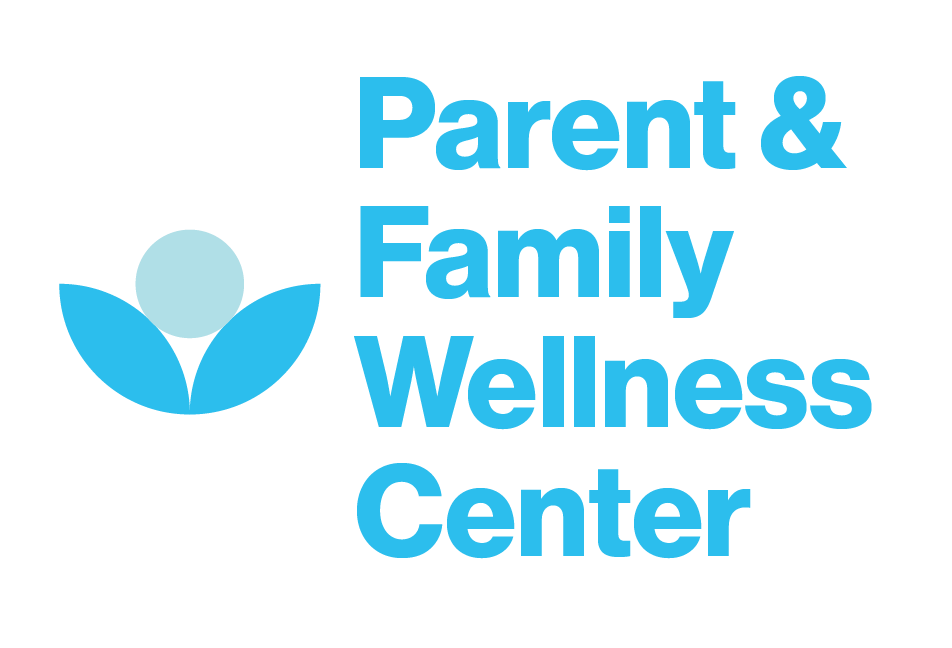Perinatal Assessment Program & PFWC’s Impact
Early Maternal Mental Health Screening in Medical & Midwifery Clinics
Why
While many women experience some mild mood changes during or after the birth of a child, 20% of women experience more significant symptoms of depression or anxiety. ‘Perinatal mood and anxiety disorders’ (PMADs) is an umbrella term that encompasses maternal mental health issues during pregnancy and up to one year postpartum. PMADs are a leading complication of childbirth in the US, however, they are the most under-diagnosed obstetric complications in America with more than 75% of new mothers remaining undiagnosed.
How
In order to address this major gap in diagnosis and treatment, PFWC places qualified clinical interns in medical practices to provide 4-week mental health checks to all postpartum women. Using a combination of validated measures and biopsychosocial interviews, clinicians provide a supportive presence and are able to normalize challenges, assess for symptoms and vulnerabilities, and provide appropriate community referrals as needed. We also provide assistance during prenatal visits when medical practitioners believe that their patients would benefit from a mental wellness check, and offer preliminary assessment, screening and ad-hoc support. For people struggling with perinatal mood or anxiety issues and who lack the resources necessary to connect with private therapists in the community, interns are able to provide low-fee specialized psychotherapy.
Who
While pregnant and postpartum biological mothers have been the primary focus of assessment and intervention efforts thus far, our work in clinics has also afforded us the opportunity to interface with fathers and non-carrying mothers, and we have been able to provide appropriate assessment, referrals, and treatment that meet the needs of various family configurations. We continue expanding the scope of services to address a diverse spectrum of need in our community. By offering these integrative assessments and low-fee counseling possibilities, PFWC ensures that fewer people who are struggling fall through the cracks, and makes certain that every person receives the support she or he needs to successfully transition into parenthood.
PFWC’s Impact
Over 900 hours of mental health assessment offered per year.
Over 1000 pregnant and/or postpartum mothers per year are screened and receive information about community referrals.
All of these 1000+ mothers receive a follow up email and/or call within 4-weeks of initial assessment
50-60% of these mothers receive a direct referral to a mental health professional or other support.
Over 2,000 hours of supervision, mentorship, and training per year provided to mental health professionals.
We Know That
Emotional challenges in the pregnancy and postpartum period are very common, and are nothing to be ashamed of.
Everyone transitioning into parenthood benefits from appropriate assessment.
People suffering from a perinatal mood disorder deserve the specialized treatment required to help them heal and move forward.
Why We Need More Perinatal and Postnatal Programming
Perinatal mood and anxiety disorders (PMADs), like Postpartum Depression, are the most common complication of childbirth and are the most under-diagnosed obstetric complications in America with more than 75% of new mothers remaining undiagnosed.
Up to 1 in 5 women in the US will develop a mood or anxiety issue during pregnancy or the postpartum year, affecting an estimated 700,000 of women.
PMADs can affect women of any race, age, or socioeconomic background, and it can occur with any pregnancy or birth.
Research demonstrates that untreated mental illness in parents is a leading cause of mental heath challenges in children, and negatively impacts the growth and development of infants.
As early as 6 weeks of age, newborns become distressed if their interpersonal relationships with caregivers are even slightly disrupted, and Evidence of infants experiencing symptoms of depression has been found in children as young as four months of age.
Babies depend on the emotional nurturance, protection, and stimulation of their caregivers—and these things are difficult to provide for someone with an untreated mental health issue.
Community Partnerships
COMMUNITY OUTREACH & ASSESSMENT
Boulder Medical Center (Boulder and Longmont offices)
TRAINING
PARTNER ORGANIZATIONS
We envision a world where all parents receive the support and care that they need so that they and their children can truly thrive.
The PFWC’s unique training program creates a workforce pipeline of highly qualified reproductive mental health specialists, and also drastically increases the number of women who are assessed for perinatal mental health challenges.
Mission
To improves the mental health and well-being of mothers and their families.
We achieve this mission by offering early mental health assessment and ongoing support to mothers and their families, and by providing expert training and mentorship to mental health professionals.
Approach
Training and Assessment.
Two Needs: One Solution
Mothers need mental health screening and access to treatment. Clinicians need specialized training.
Our training program offers expert mentorship and ongoing supervision to mental health clinicians who are looking to specialize in reproductive mental health.
We place learners in medical practices (Ob/Gyn, Midwife, or Pediatric clinics) where they provide in-depth mental health assessments to mothers and their families as part of their routine care. Our trainees also provide low-fee ongoing counseling for women and families in need of affordable, specialized treatment.
Expanding Partnerships in 2023
Interested medical clinics, educational institutions, and organizations serving maternal and early family mental health please contact emily@parentfamilywellness.com

